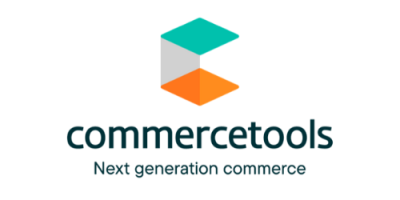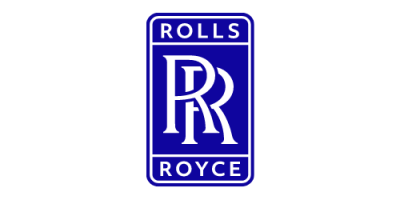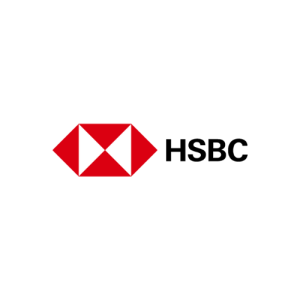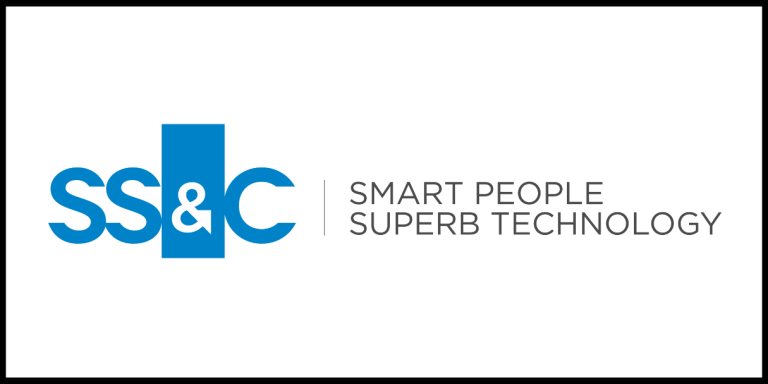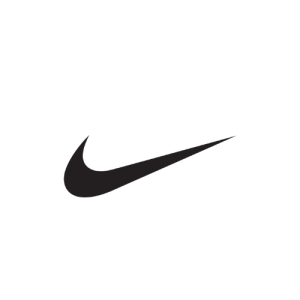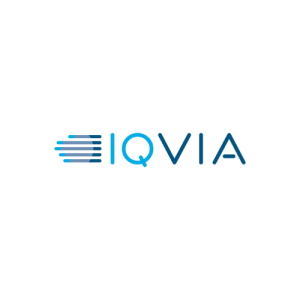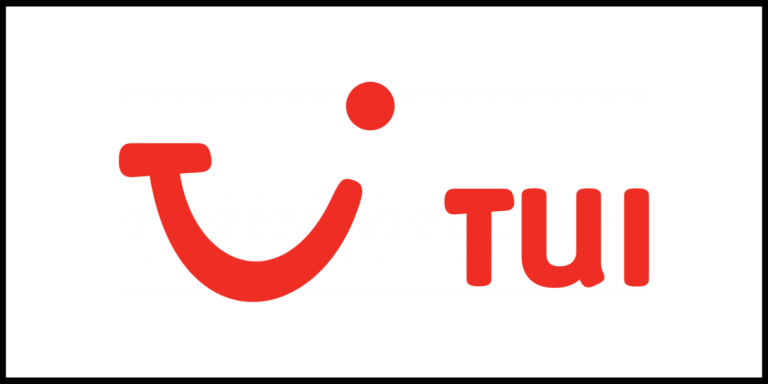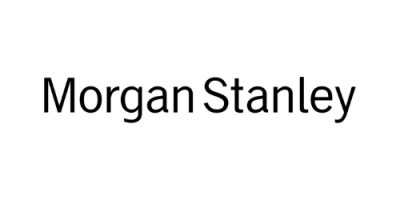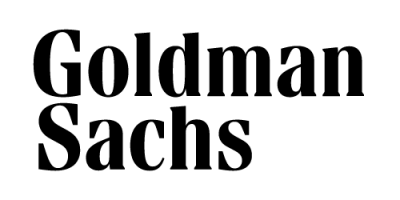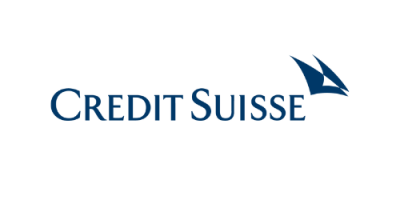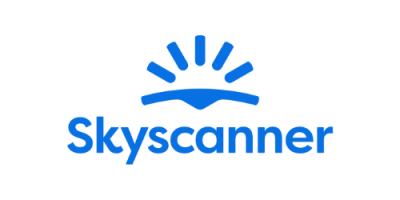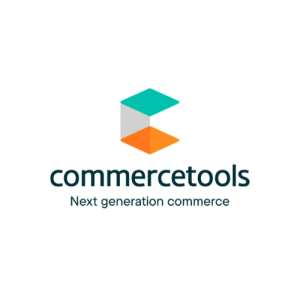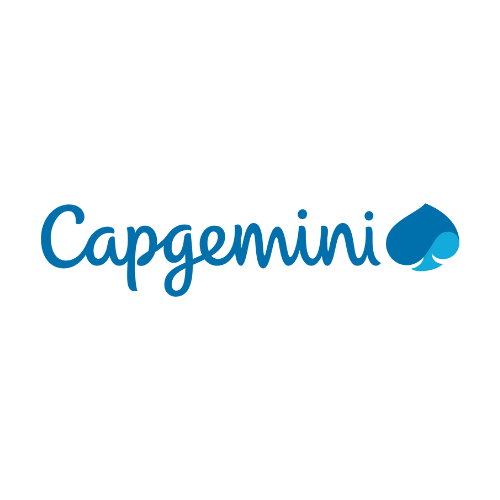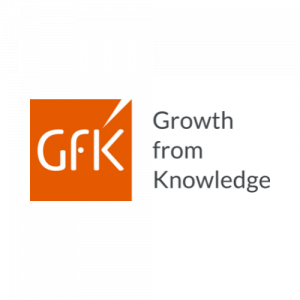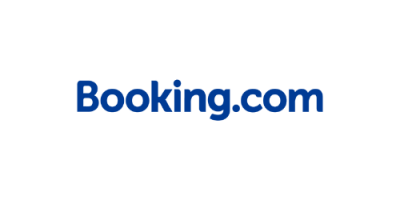Career Tips from an [Ex] Tech Recruiter: How to ACE your interview and start your career off strong 💪
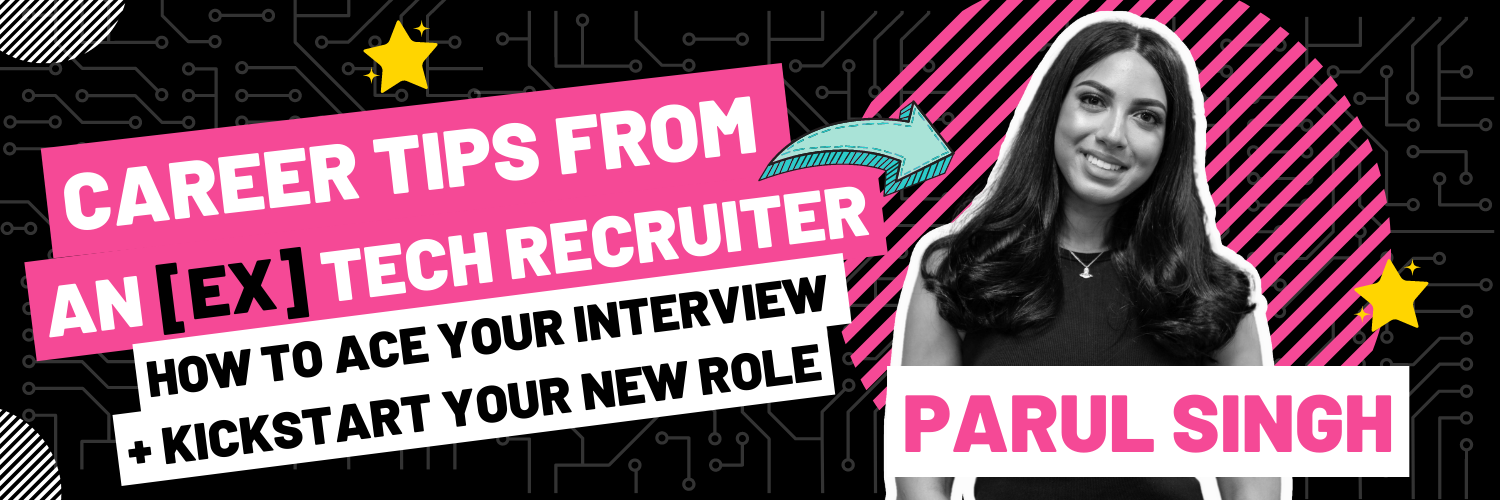
A top tips helpful guide for women to be best prepares for their following tech interview from discussing salaries and parenthood, as well as what you can do to future proof your career from the start!
We’re back again with Parul Singh! An ex-tech recruiter who has put her hand up to unlock all the insights into what recruiters look for when finding candidates for great tech job roles. In our last blog with Parul we explored how you can land your first role in tech, but in this blog – we want to help you not only ace your interview but also start your career off right! Let’s get started.
🤝 In an initial interview, who from the company may be involved and what is the purpose of it? How can applicants best prepare to speak to those company members?
Usually, you can expect to start off with an initial interview with an internal recruiter at the first stage to gauge your fit for the role. This won’t be an in-depth technical interview, but there are likely to be high-level questions about your experience, your motivations and what you know about the company.
A couple of things to consider before you enter the interview:
- Research on the points I mentioned earlier (read part 1 for this), but do in-depth research of the company through their websites and blog, get an idea of their values, their case studies etc.
- Ask! This sounds obvious, but don’t be afraid to email the recruiter to ask them what you can expect from this call. Whenever someone is a bit nervous and asks for this I give them as much info as I can, sometimes just giving them the questions I will ask. I’m here to make you comfortable and set you up for success, not trip you up.
What are some DO’S AND DON’TS for a successful online interview 💻
👍 Do
- Join a few minutes early (and make sure microphones and cameras are working!)
- Come with good, non-generic questions. The more specific about the company the better
- Try not to script your answers, but I’m a big advocate of having a sticky note with a few bullet points to help you remember key pieces you want to mention. I’ve got the memory of a goldfish so I don’t expect you to recall everything perfectly from memory either!
👎 Don’t
- Don’t take the call on your phone if its a video call, it’s quite distracting as it moves too much
- Contrary to popular belief you don’t need to send a thank you note after interviews but do thank your interviewer at the end of their time
- Another dodgy bit of advice which often circulates social media is “ask them at the end if they have any reservations about you or your experience”. This puts them on the spot and can make it a bit awkward.
🫶How do you know if you’re a culture fit for the company? Especially if it’s a remote or hybrid work environment? What things can we look out for?
I think culture fit is a tricky one, we focus on values-fit and do our interviews around this instead so I’d say it’s important to ensure your values align with the company.
You can ask questions about how flexible they are around things like medical appointments, school drop offs etc – the way they answer this question is often very telling.
For remote/hybrid roles I think a great question to ask is how exactly they collaborate across the team and even company, what platforms do they use, how much time do people tend to spend in meetings and are there any ways to get to know your team in an informal way?
📎👩💻 Is there a typical process that someone goes through for an interview i.e. telephone call, then technical assessment, or technical interview perhaps – or does it vary depending on the organisation?
The approach varies and I know companies who treat interviews like an interrogation and others who treat it more like a 2-way process.
During my time so far – I’ve recruited for a LOT of different tech businesses and honestly, it really depends, you can have anything from 2-5 out of the below:
- Recruiter call
- Initial interview with the hiring manager
- Technical interview (verbal only, no coding)
- Take home test
- Technical assessment (talking through tech test)
- Paired programming exercise
- Competency-based interview
- Culture interview (as mentioned above, we do a values-led interview instead of this)
- Psychometric test (I really don’t agree with this one!)
- Online coding test (via Codility etc)
🤱🧑🦼 During the interview, how can women approach the topic of making adjustments due to personal reasons such as disabilities or circumstances such as parenthood?
Unfortunately, candidates are still discriminated against despite the push for DEI so I would only advise requesting reasonable adjustments at the interview stage if it’s something that would impact you in the interview process. For example, I’ve got ADHD and I know this really does affect how I interview so I would disclose it at the interview stage.
For things like parenthood (or soon-to-be parenthood), you don’t have to specifically disclose this during your interview. But if you need further advice on parental rights and disclosing information to potential employers, we would recommend checking out the Citizens Advice.
💳 If the salary isn’t disclosed in a job description 🤔how would an individual approach this in an initial interview?
⏳ First of all, let’s be honest, we work for money so there is absolutely nothing wrong with wanting to know what the salary is at the beginning to save wasted time on either side.
🤐 And secondly, you should never disclose your current salary!
📞 The recruiter should always discuss this with you in the first call, if you have to be the one to bring it up then I’d say ask “What is the budget you have approved for this role?”. The wording is key here, as a role can’t be live without a budget approved unless their finance department is run by 5-year-olds so they can’t really skate around this.
🏃♀️If a company considers this a red flag from you then it’s a red flag for you and I can guarantee you if they try to pull the wool over your eyes now you’ll be fighting tooth and nail for a minute salary increase when you actually work there!!!
Start your career off strong! Here’s some words of advice 💝
If you’re reading this then we hope you’re ready to kickstart a brilliant new career in tech! Getting started doesn’t have to be difficult with these tips, and we want to see you excel on up in your career so we’ve included a few ways you can future proof your career before you even start.
🚀 What are your tips for moving up in tech and owning your career?
🎯 State your intentions: Bring up your intentions to move up in tech and own your career in your one-to-one with your manager. Ask about the core areas of competencies the business assesses, where you’re currently up to you and what you should be doing to take the next step.
⛰️ Don’t hold yourself back: If you don’t ask, the answer is always no. A great book I recommend reading is “The No Club” which talks about non-promotable tasks in the workplace and how women are disproportionately affected and how they can streamline their work to have a good mix of tasks that are recognised.
🔍 Do your research as well: Some of the job platforms I mentioned earlier have salaries on most roles, Cord actually has their own salary benchmarking tool. Agency recruiters create their own market reports too which are generally good, but I was sent one recently which had massively inflated salaries so you need to understand that they have an incentive to convince you you’re underpaid (but you may well be). It’s important to do your research on similar roles out in the market and ask around.
📁Come with your own case study: From the time you start at your role (or even from this point after reading this) start a brag doc (see below) and keep it updated as you go. This can become your own case study with justifications for promotions and increases.
📁 What is a brag document, and how will it help someone to grow in their career? 🌵
A brag document is a digital or a physical document that you use to keep track of all of your accomplishments and contributions at work. I’ve been keeping one for six months and I coach others in helping them get started with theirs and it is a GAME CHANGER!
How you can use your brag doc?
They’re great for pay reviews, promotion reviews, writing your CV, preparing for interviews etc but also just really good for building your confidence because you’re having to be constantly aware of all the good stuff you’re doing 🥳.
Resources to help:
- If you’re curious to learn more, I wrote about brag docs in detail in my newsletter here.
- And you can download a free Notion template I created specifically for tech folks here ‘Tech Brag Dock Template’.
☁️ What advice would you give someone who was looking for the next step in their career, but doesn’t know exactly where to look 🔍 or what to do? What resources could be available?
A good mentor is worth their weight in gold. I’ve had so many people who I look up to who have been informal mentors to me, they’ve helped guide my career and I attribute much of my success to date to them. My mentors have been people I’ve met through work, events that I’ve run or even ex-clients.
🙌 What has been the best career advice someone has given to you?
The best career advice I’d ever been given is to make yourself as visible in the organisation as possible. Especially when working remotely you want to build relationships with key people in other departments outside of your own. I’ve done internal talks and ran initiatives which has given me this visibility and in turn more credibility and opportunities like creating a new role in Recruitment Marketing and also the Neurodiversity Advocate role.
😃 When I know what I want, I’ll stop at nothing to get it!
That’s all for now! Thank you Parul for answering our questions. Can you tell our community where they might be able to find you?
You can find me on LinkedIn (and my newsletter too), I’m always happy to connect and chat with new people 😊


